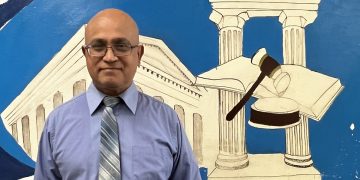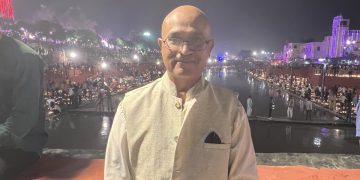Judges in Guyana need to raise the bar on libel or even slander. The media have been forced to be cautious in publishing or exposing wrong doings involving officials. The judges have the power to determine what constitute free speech, granting wide latitude to the media to freely expose officials who engage in wrongs.
Suits relating to libel and slander have the effect of censoring free speech. When speech is censored or limited, the nation is denied truth or the whole story relating to an event. Libel also limits accountability, meaning wrong doings cannot be exposed and as such officials will have a free reign to raid the treasury.
The public and the press should have freedom to critique or criticize officials who must not be thin skinned; government officials must be held accountable for their policies and actions as is the case in a real matured democracy. Their actions and violations must be made public.
In the US, or India or Western European countries, for example, the media and the public hold officials accountable through the press. In the US, the judges or the court empower the media and the public to expose the unacceptable behavior of officials. The US Supreme Court has granted unlimited powers to the media to pen virtually anything and everything about politicians or those who are in public life. Even untruths are protected in the press depending on the circumstances that led to their publication. Libels against untruths have virtually no chance to succeed in an American Court. Judges tend to side with the free press — bad speech is better than no speech.
In a US Appeal Court ruling three weeks ago, the judge dismissed an appeal of a lawsuit filed by former Republican Vice Presidential candidate (2008) Sarah Palin who sued the New York Times for publishing an editorial that carried inaccurate information relating to her. Palin had lost the suit last February by jury trial in a lower court. Even before the jury had reached its decision and while it was in deliberations, the presiding judge said even if the jury ruled in Palin’s favor, he would dismiss the decision. The precedent ruling set by the US Supreme Court decades ago makes it almost impossible to win a libel. The precedent is the libel must prove malice or intent to defame. The lower court judge said that while mistakes were made by the NYT in its editorial, the paper did not act with malice against Palin.
Palin appealed to a higher Circuit Court contending the judge in the lower court was biased by stating he would dismiss the lawsuit ahead of the verdict. The Circuit Appeal Court dismissed the appeal, stating that Palin failed to present any evidence to substantiate her libel suit — meeting the minimum threshold of libel, i.e malice. In the US, to prove libel, one must demonstrate malice by the media — defined as knowingly publishing untruth with the intent to defame someone. Palin did not prove malice. Actual malice or intent to publish untruth is the legal bar that the Supreme Court set for any libel or slander lawsuit.
The NYT did admit that it published an untruth in its editorial on Palin. But the paper ran a correction the next day. The paper’s editor claimed the paper was not aware that the information was inaccurate when it went to press, adding that when it became aware of the inaccuracy, it ran a correction. No malice was intended or proved in court. The fact that there was a correction in the paper affirmed there was no malice. Thus, the lower and appeal courts ruled Palin was not defamed. The paper did not intentionally penned untruths against Palin— difficult to cross this minimum threshold to prove libel or defamation.
In the US, even if a person can prove defamation and win a libel, in order to get a financial reward, the person has to show loss of income that is attributed to the published defamation. The latter is very hard to prove, making libel even more difficult to win an American court. People are known to win defamation suits but get no money because they suffered no loss of income. Supporting evidence would be needed to show how income is loss and how it is tied to untruthful or malicious information published in the media. In Guyana, everyone threatens libel when wrong doings are exposed. And in court, judges side with libel even when cases are very weak and characters are not damaged. For exposing wrong doings, the press is punished. The guilty tends to get rewarded.
Speech in America, where more Guyanese reside than in Guyana, has almost absolute protection, and it is a result of an initial ruling by the Supreme Court decades ago. Judges in Guyana should take a cue from the US and protect free speech, even bad or incorrect speech. Those who claim libel should de made to prove malice. Media that acknowledges error in publishing false information and run a retraction or a correction should be excused from libel. Off course, the person claiming the published information is false must provide evidence substantiating the claim. Judges need to set a higher standard in proving libel — protect rather than punish speech.








































































